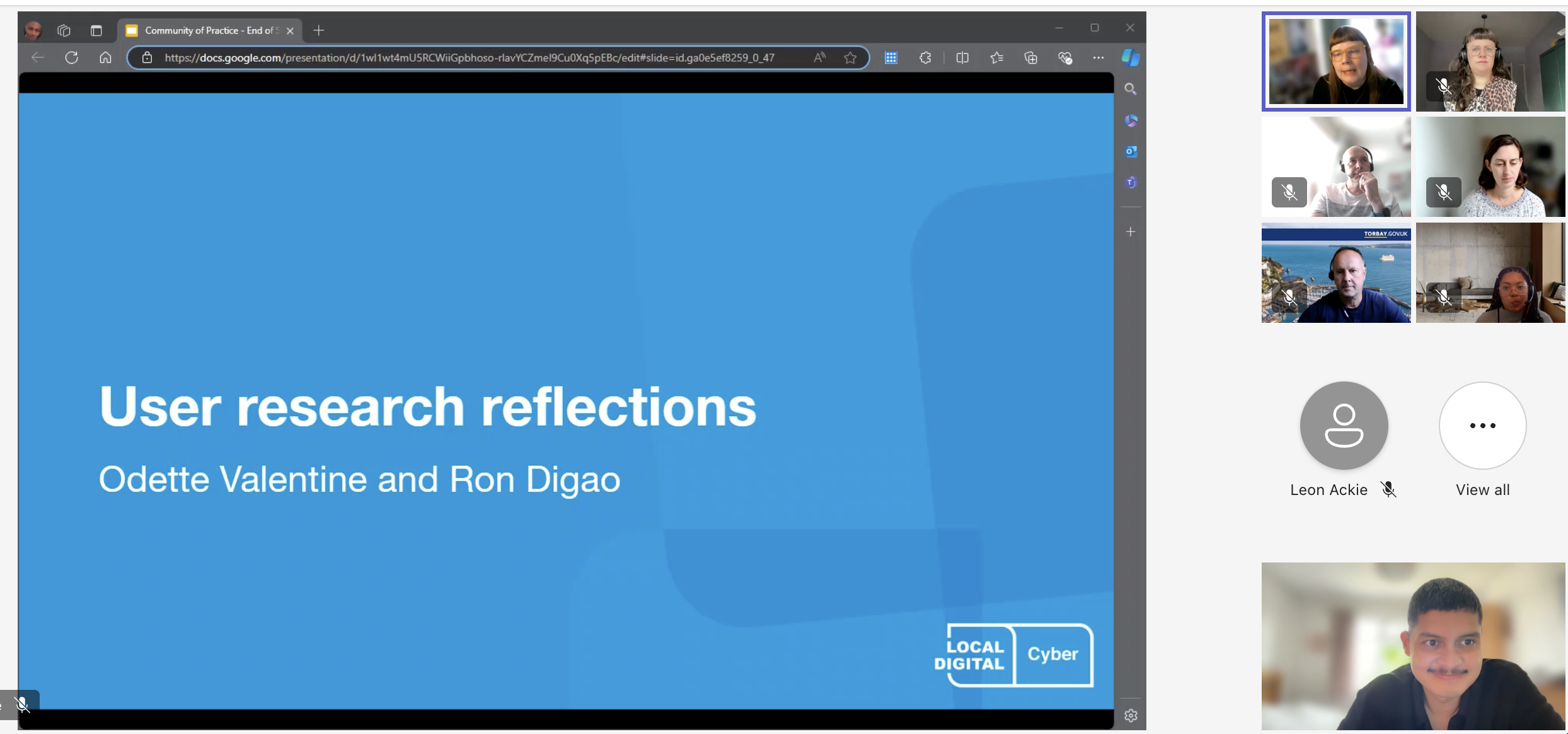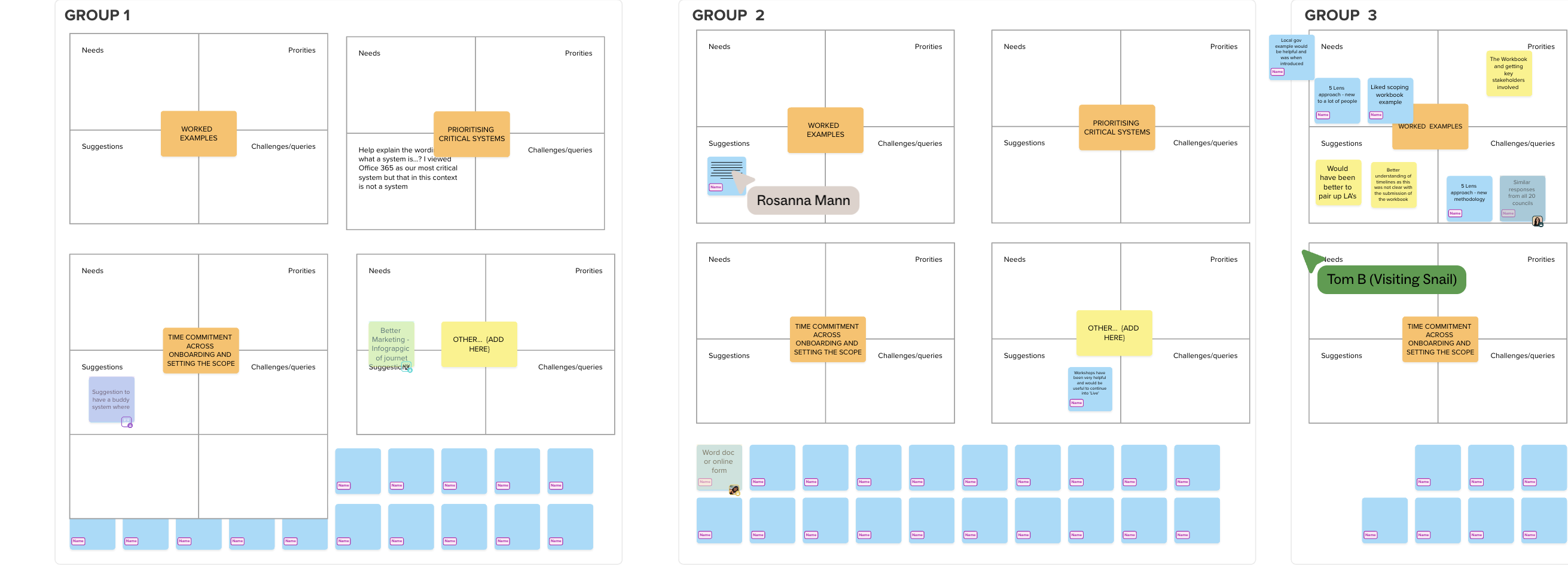Leveraging Design Research for Cyber Assessment and Enhancing Digital Maturity in Local Councils
2024

During my consultancy work with MHCLG, I had the opportunity to contribute to a project focused on supporting local councils in assessing their digital capabilities with the intent to advance their cyber maturity.
As councils increasingly adopt digital technologies to streamline services, the need for robust cyber frameworks becomes essential to ensure the resilience of digital infrastructures.
In this project, design research played a crucial role in helping councils identify gaps in their digital practices and align technological improvements with their overall digital maturity goals.
TPXImpact
Design Research
As councils increasingly adopt digital technologies to streamline services, the need for robust cyber frameworks becomes essential to ensure the resilience of digital infrastructures.
In this project, design research played a crucial role in helping councils identify gaps in their digital practices and align technological improvements with their overall digital maturity goals.
TPXImpact
Design Research
Project Overview:
At the core of this project was the need to understand the specific challenges that local councils faced. We conducted in-depth research, including interviews and workshops with council IT teams, service providers, and stakeholders responsible for managing their digital processes. The goal was to gather insights into their current practices, pain points, and the operational challenges they encountered in maintaining secure digital environments.

Research Process:
To assist councils in strengthening their digital posture, we followed the comprehensive cyber assessment framework for local government provided by MCHLG. We used design research methods such as co-creation workshops, stakeholder mapping, and system audits to help councils identify where they stood in terms of cyber readiness and what steps they needed to take to address vulnerabilities.
By breaking down digital maturity concepts and involving teams from different departments, we ensured that the assessment process was inclusive and easily understood by both technical and non-technical staff. This user-centered approach helped councils prioritize digital improvements that were both practical and aligned with their organizational needs, enhancing overall digital maturity.

While cybersecurity was the primary focus, we ensured that our recommendations aligned with each council’s broader digital maturity objectives. Digital maturity involves not only the implementation of advanced technologies but also ensuring that these technologies are secure, sustainable, and scalable across the organization.

Fostering Continuous Improvement:
Digital maturity, particularly in the context of cybersecurity, is an ongoing process. Recognizing this, we advocate for an iterative approach to cyber assessment, where councils continuously assess and improve their security measures. By applying design research methodologies such as testing and feedback loops, we helped councils establish a framework for ongoing cybersecurity improvement.

Through this project, I gained valuable experience in using design research to enhance digital maturity within local councils. By focusing on understanding user needs, assessing cyber vulnerabilities, fostering a culture of security awareness, and aligning security practices with digital transformation goals, we were able to deliver meaningful, long-lasting improvements.

This project reinforced the critical role that design research plays in ensuring that digital maturity is achieved not just through technological advancements but through secure, user-centered solutions that protect both the organization and the communities they serve.